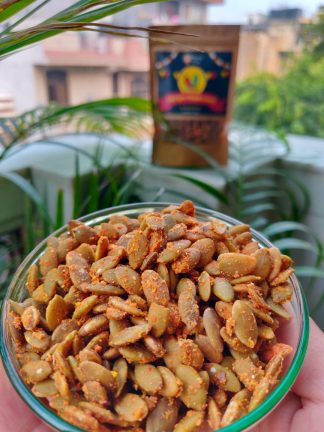
Eczema, a multifaceted skin condition, presents itself in a variety of forms, each with its unique set of symptoms and triggers. In a detailed video by Medical Centric, eight distinct types of eczema are meticulously explored, providing a wealth of knowledge for those seeking to understand and manage this condition better.
1. Atopic Dermatitis: The Chronic Challenger
Atopic Dermatitis is a chronic form of eczema often beginning in childhood. It is characterized by:
- Dry, Itchy Skin: Often leading to red, inflamed patches.
- Location: Commonly appears on the face, behind the knees, and inside the elbows.
- Triggers: Can be exacerbated by allergens, irritants, and environmental factors.
2. Contact Dermatitis: The External Reactor
Contact Dermatitis results from direct contact with irritants or allergens, such as:
- Soaps, Detergents: Harsh chemicals can lead to reactive skin.
- Jewelry: Metals like nickel can cause reactions.
- Symptoms: Redness, itching, and sometimes blisters.
3. Dyshidrotic Eczema: The Blistering Type
Dyshidrotic Eczema is notable for:
- Small Blisters: Often appearing on the hands and feet.
- Itching and Redness: Accompanying the blisters.
- Triggers: Stress and seasonal allergies are common culprits.
Further Reading for a Deeper Dive in Eczema:
- Biologics for Eczema: A New Era of Eczema Treatment
- Foods to Avoid for Eczema: Insights from Gut Health Expert Dr. Chanu Dasari MD
- Healing Eczema Naturally
4. Hand Eczema: Focused on the Hands
Hand Eczema, as the name suggests, is concentrated on the hands and can be influenced by:
- Work Exposure: Regular contact with irritants.
- Skin Care: Frequent hand washing or exposure to chemicals.
5. Neurodermatitis: The Itch-Scratch Cycle
Neurodermatitis is characterized by:
- Intense Itching: Often in one or two spots.
- Thickened Skin: Resulting from continuous scratching.
- Trigger Avoidance: Essential for management.
6. Nummular Eczema: The Coin-Shaped Rash
Nummular Eczema presents as:
- Coin-Shaped Lesions: Distinct round spots on the skin.
- Dry, Itchy Patches: Often mistaken for fungal infections.
7. Seborrheic Dermatitis: The Scalp and Face Concentration
Seborrheic Dermatitis primarily affects the scalp and face, resulting in:
- Dandruff: Flaky skin on the scalp.
- Redness and Scaling: Particularly around the nose and eyebrows.
8. Stasis Dermatitis: The Lower Leg Focus
Stasis Dermatitis is associated with poor circulation and typically affects the lower legs, causing:
- Swelling: Especially around the ankles.
- Varicose Veins: Often present with this condition.
Featured Video: For a more in-depth exploration of each eczema type, watch the video by Medical Centric. It provides a wealth of visual and descriptive information to enhance your understanding.
Further Reading for Enhanced Understanding and Guidance
Navigating through the complexities of eczema can be a challenging journey. To aid you in gaining a more profound understanding and finding effective management strategies, here are some meticulously curated articles that delve deeply into various aspects of eczema and skin health:
- Biologics for Eczema: A New Era of Eczema Treatment: Explore the revolutionary world of biologics and their transformative impact on eczema treatment. Uncover how these advanced therapies are changing the landscape of eczema management.
- Foods to Avoid for Eczema: Insights from Gut Health Expert Dr. Chanu Dasari MD: Dive into the intricate relationship between diet and eczema. Learn from a gut health expert about the foods that may exacerbate or soothe your eczema symptoms.
- Healing Eczema Naturally: Embark on a journey towards natural remedies and holistic approaches in managing eczema. Discover ways to alleviate symptoms and promote skin healing without solely relying on conventional medications.
- Tea Tree Oil and Eczema: A Natural Remedy Explored: Unveil the potentials of tea tree oil as a natural ally against eczema. Explore its benefits, uses, and the scientific perspective on its efficacy.
- Side Effects of Steroid Creams for Eczema: Gain insights into the potential side effects of commonly used steroid creams in eczema treatment. Equip yourself with knowledge to make informed decisions regarding their usage.
Each article is a reservoir of valuable insights, practical advice, and the latest scientific perspectives, designed to empower you in managing eczema more effectively and holistically. Happy reading! 📚🌿
Conclusion
Understanding the various forms of eczema is crucial for effective management and treatment. Each type has its unique characteristics, triggers, and treatment approaches, making personalized care essential. This guide aims to provide a comprehensive overview, aiding in better awareness and informed decision-making regarding eczema care.
FAQs for Better Understanding
- How can I differentiate between Atopic and Contact Dermatitis? While both manifest as itchy, red patches, contact dermatitis usually occurs after direct contact with an irritant, whereas atopic dermatitis is often genetically predisposed.
- Is stress a significant factor in eczema flare-ups? Yes, especially in types like Dyshidrotic Eczema, where stress can lead to the appearance of painful blisters.
- Can diet influence eczema symptoms? Certain foods might trigger eczema in some individuals. It’s essential to observe and identify any potential dietary triggers.
- Are there natural remedies for eczema? While medical treatments are primary, some find relief with natural remedies like coconut oil, aloe vera, or oatmeal baths. Always consult with a dermatologist before trying new treatments.
- How often should I moisturize if I have eczema? Regular moisturizing, multiple times a day, can help maintain skin hydration and reduce eczema symptoms.
Blog Tags: Eczema, Atopic Dermatitis, Contact Dermatitis, Dyshidrotic Eczema, Seborrheic Dermatitis, Skin Health, Eczema Management










[…] In-depth into Different Types of Eczema: Gain a broader perspective by exploring various types of eczema and their specific management approaches. Explore. […]